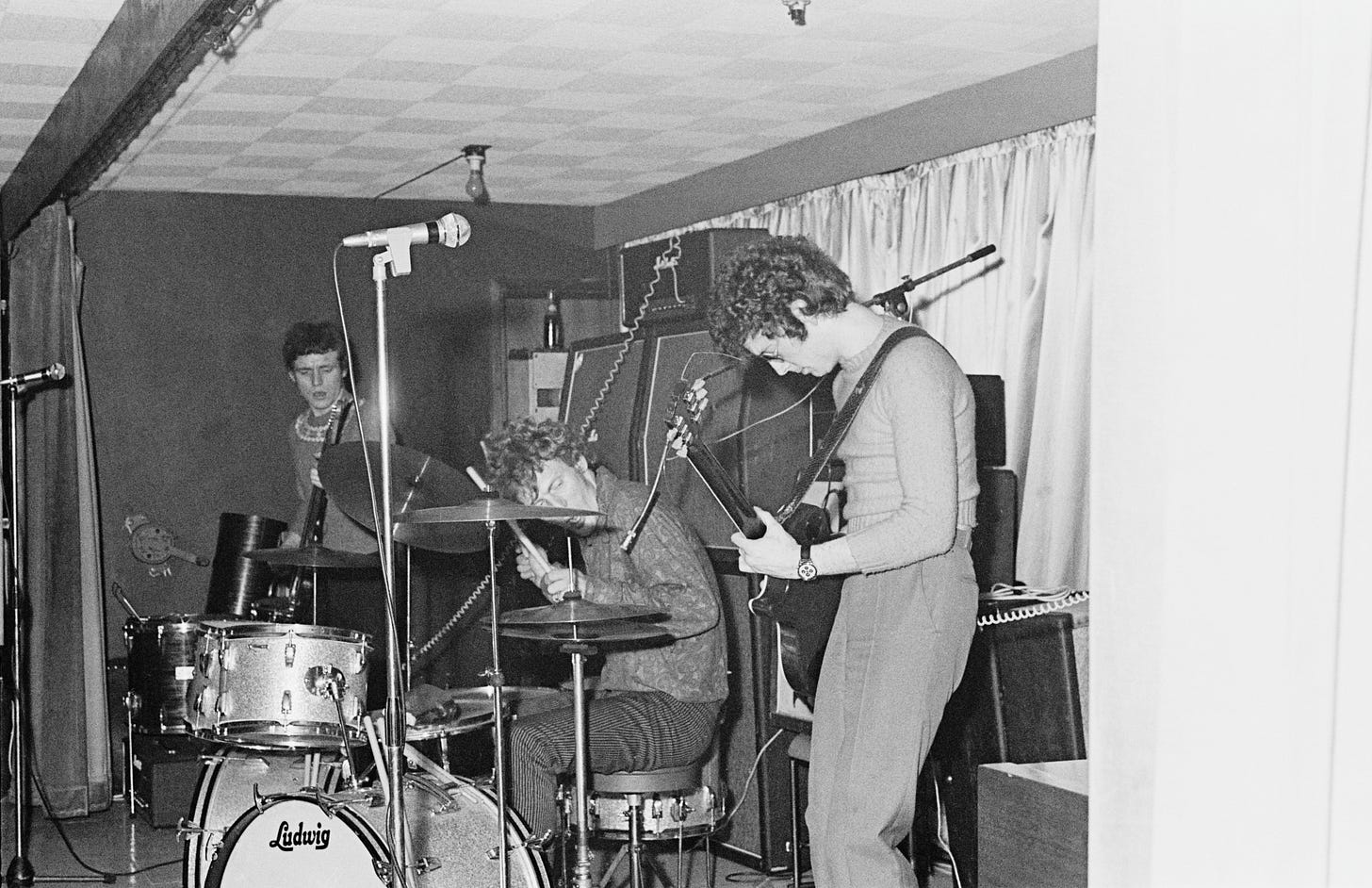TL(PM) DIGEST: Cancel culture with Chinese characteristics
Plus hundreds of thousands of Americans unfairly lose health coverage, a sports betting disaster waiting to happen, and a whole new ecosystem under the sea

1. Cancel culture with Chinese characteristics
What happened? The New York Times reports on a rash of cultural cancellations in China in recent weeks, including:
A Japanese choral band touring China, stand-up comedy shows in several cities, jazz shows in Beijing. In the span of a few days, the performances were among more than a dozen that were abruptly called off—some just minutes before they were supposed to begin—with virtually no explanation.
Just before the performances were scrapped, the authorities in Beijing had fined a Chinese comedy studio around $2 million, after one of its stand-up performers was accused of insulting the Chinese military in a joke; the police in northern China also detained a woman who had defended the comedian online.
Why does it matter? These cancellations appear to be part of dictator Xi Jinping’s ongoing attempt to bend Chinese culture to the whims and objectives of the country’s ruling Chinese Communist Party. As the Times notes, Xi “has made arts and culture a central arena for ideological crackdowns, demanding that artists align their creative ambitions with Chinese Communist Party goals and promote a nationalist vision of Chinese identity.”
TLP’s take: Demanding culture, whether high or low, conform to the dictates of a prevailing ideology sucks the life and vitality out of just about any sort of art. It’s a form of tyranny that must be resisted wherever it arises, whether it’s imposed by the state and its ruling political party or mid-level corporate bureaucrats, hyper-sensitive activists, and the petty despots of social media.
2. Low-income Americans are unfairly losing their health coverage
What happened? “Hundreds of thousands of low-income Americans have lost Medicaid coverage in recent weeks as part of a sprawling unwinding of a pandemic-era policy that prohibited states from removing people from the program,” the New York Times reports.
Why does it matter? Covid relief legislation passed in 2020 prohibited states from kicking people out of Medicaid for the duration of the emergency period. After this requirement expired in March, states have reinstated often onerous eligibility checks that have forced hundreds of thousands of people out of the program, many still eligible for Medicaid, for not filling out proper forms and jumping through other state hoops. For example:
In Arkansas, more than 1.1 million people—over a third of the state’s residents—were on Medicaid at the end of March. In April, the first month that states could begin removing people from the program, about 73,000 people lost coverage, including about 27,000 children 17 and under.
Among those who were dropped was Melissa Buford, a diabetic with high blood pressure who makes about $35,000 a year at a health clinic in eastern Arkansas helping families find affordable health insurance. Her two adult sons also lost their coverage.
Like more than 5,000 others in the state, Ms. Buford, 51, was no longer eligible for Medicaid because her income had gone up. A notice she received informing her that she did not qualify made her so upset that she threw it in a trash can.
But a majority of those who lost coverage in Arkansas were dropped for procedural reasons.
TLP’s take: As the surge in Medicaid enrollment during the pandemic showed, there is a desperate need for more health care services—not fewer. Having access to basic health care is not being “dependent on the government,” as Arkansas Gov. Sarah Huckabee Sanders recently wrote in defending her state’s actions—it’s a basic human right that all people deserve, something politicians should understand given they all enjoy generous taxpayer-funded health care benefits.
3. Sports betting is ticking time bomb for social disorder
What happened? The NCAA commissioned a poll of young adults ages 18-22 to measure exposure to and participation in various forms of betting on sports. Nearly 6 in 10 young people report having engaged in at least one sports betting activity, with more than two-thirds of young adults on college campuses placing bets on sports contests.
Why does it matter? Sports betting is becoming a massive and mostly unregulated industry with the potential for serious gambling addiction problems. As Opinion Diagnostics reports:
Advertisements have a major influence on betting activity: 63 percent of on-campus students recall seeing betting ads. This is a higher rate than that found in the general population or those that commute/virtually attend college, and 58 percent of those students indicate they are more likely to bet after seeing the ads.
Problem gambling shows up in this population, with 16 percent having engaged in at least one risky behavior and 6 percent reporting that they have previously lost more than $500 on sports betting in a single day. 70 percent of these risky gamblers believe consistent sports gambling will increase their monetary earnings.
This population places bets in a variety of ways, but the accessibility of mobile sports betting has made that the preferred choice, with 28 percent choosing the mobile app method for their wagering. Live in-game betting is the most popular type of bet for those that use betting apps or visit in-person sportsbooks, surpassing more traditional forms of sports betting like money line or over/under.
TLP’s take: After the Supreme Court basically opened the floodgates for sports betting in 2018, 33 states plus D.C. now legally allow this activity. The industry lacks basic regulations, however, and lawmakers shouldn’t stand idly by as more and more young and low-income people develop gambling problems and squander their money. State and federal lawmakers need to seriously reconsider the obvious downsides of this activity, consider strict age and betting limits, and restrict the ubiquitous sports betting advertising that now pollutes nearly every single sporting event on television.
4. Thousands of new species discovered on mineral-rich Pacific seafloor
What happened? Researchers from the Natural History Museum London uncovered roughly 5,000 new species in a survey of a 2.3 million square mile stretch of Pacific Ocean seafloor between Mexico and Hawaii coveted by deep-sea mining companies for its high concentration of nodules rich in critical minerals like cobalt and manganese needed for electric vehicle batteries. The new species include a number of invertebrates, ranging from shrimp-like creatures to “sea urchins, sea cucumbers, worms and sponges” that live in and among the nodules.
Why does it matter? The discovery of a thriving ecosystem surrounding mineral-rich seafloor nodules definitely complicates efforts to open these locations to mining. It’ll certainly factor into the deliberations of the International Seabed Authority, the UN-affiliated body that regulates activities on the seafloor in international waters.
TLP’s take: It’s hard enough to strike the proper balance between environmental protection, scientific discovery, and necessary resource extraction on land, to say nothing of the unexplored seafloor. As demand for critical minerals soars, we should probably look to more conventional ways to get them first—and at least take the time to better understand the underwater environment we might turn to for resources later on.
Just one more thing…
Pete Brown, the British Beat poet who conjured up lyrics to Cream classics like “Sunshine of Your Love” and “White Room,” passed away in Hastings, England at age 82.






